#Jean-Patrick Manchette
Explore tagged Tumblr posts
Text
Leçon de ténèbres
On entre dans Fonds noirs (Xavier Boissel, 10/18, octobre 2024) et l’on en ressort la gorge serrée – c’est en tout cas l’expérience que je viens de vivre. J’achève ainsi la trilogie commencée en 2017 avec Avant l’aube et Sommeil de cendres (2022), dont l’empan historique va de la période gaullienne, passe par Pompidou et Giscard d’Estaing, et s’achève avec Mitterrand. Il faut ajouter Autopsie des…
#Balzac#Dante#Jean-Patrick Manchette#Melville#roman noir#Samuel Beckett#trilogie#Wes Craven#Xavier Boissel
0 notes
Text











nada 1974
#nada#film#1974#claude chabrol#y a du monde tout de meme#fabio testi#lou castel#maurice garrel#michel duchaussoy#le frère de paul presboit#jean-patrick manchette#anarchisme#6/10
0 notes
Text
Skeletons in the Closet by Jean-Patrick Manchette, translated by Alyson Waters
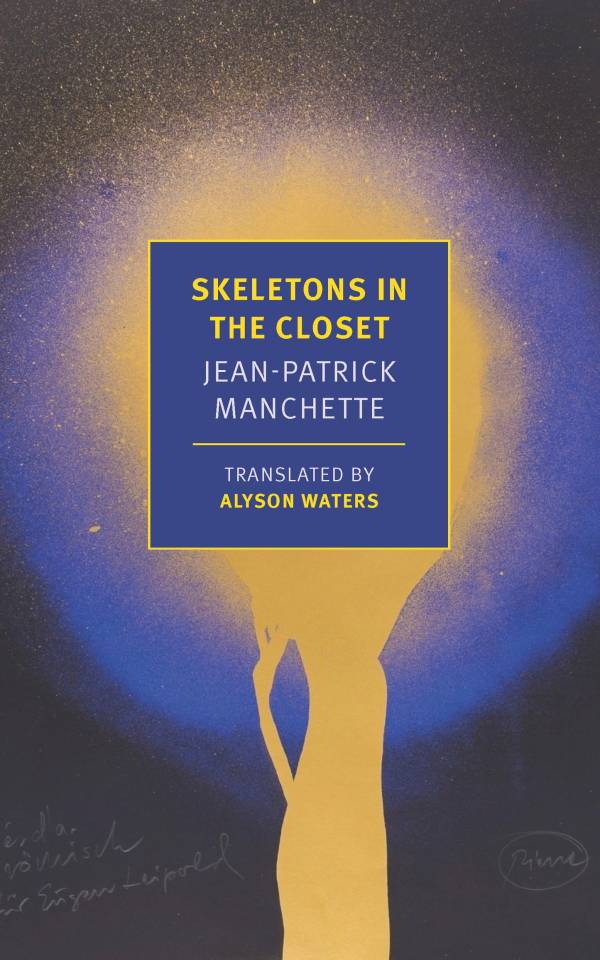
I left the apartment. Outside it was getting dark and had started to rain. It was cold. It was truly shitty weather. I raised my coat collar and strode toward the 2CV.
"In a hurry, Tarpon? Find what you were looking for?" Charles Pradier asked me as he appeared out of nowhere on my left and fell in step with me.
I glanced to my right, toward the road. Someone was walking one step behind me and he pushed me gently forward by my elbow.
"Don't be a fool. We just want to talk to you. Let's walk to your car."
I didn't answer. We walked to my car and got in, me at the steering wheel, Pradier next to me, and the other guy in the backseat.
"Don't turn around," he said, as I was about to do so to stare at him. He stopped my head from turning by grabbing a fistful of my hair. I grimaced because he was pulling on my scalp where it had been injured the day before. "Answer me," he ordered. "Did you find what you were looking for?"
We were there, in my car, in the cold, with harried people passing by on the sidewalk less than a foot away, and cars stalling on the road in the heavy traffic. We were totally isolated in what felt like a casket and Pradier patted me down quickly to make sure I wasn't armed. The windows were dripping with rain, adding halos around the neon signs of the stores and traffic lights.
"What were you looking for?" Anvil Man asked again, since I wasn't answering.
"Are you by any chance Philippine's fiancé?" I ventured.
"What were you looking for, Tarpon?"
His voice was patient and calm, his elocution precise, as if French weren't his mother tongue. He was a totally different animal from Pradier, and I think he was starting to scare me.
"Nothing in particular. A clue of some kind," I said slightly grotesquely. Pradier sniggered. "Listen," I said, "when Marthe Pigot came to see me, she was dressed like a little old lady from the country. When she was killed, she was wearing a fake-fur coat and other things. . . I just wanted to see how she usually dressed."
Anvil Man let out an approving groan. "And what did you conclude?"
"Nothing. She wanted me to think she was a harmless simpleton, I suppose, when she came to see me. And maybe she wasn't harmless for everyone." (I sighed and waved my hand cloquently.)
"And what the hell do you care about that, Tarpon?"
"'Scuse me?"
"She's dead. And she's no longer your client. You don't have a client anymore. Why don't you let the police deal with the matter?"
"The lady," I declared cinegenically, "paid me for two weeks of work in advance."
Behind me Anvil Man let out a disgusted snort. "Who asked you to work on the case, Tarpon?"
"Let's say it was Fanch Tanguy," I answered.
I don't know what got into me to say that. Maybe I wanted to see their reaction. I looked Pradier straight in the eye and he didn't react in the least, but behind me I heard Anvil Man suck in air through his teeth, and then I heard a characteristic click. No doubt about it, Anvil Man had retracted the breechblock of a semiautomatic weapon.
"We'll have to talk about that somewhere else, then. Start the car." (Pradier shot him a surprised glance.)
I started the car. Anvil Man told me what direction to take. We drove out of Mantes and headed toward Meulan on Route 190.
"Slow down," Anvil Man ordered as we were nearing a protected intersection. "Now turn left." (I turned onto a torn-up local road. Pradier looked surprised again.)
Night had fallen and in the darkness a car was coming in the opposite direction with its high beams on. I raised my right hand and adjusted the rearview mirror. At the second when the other car arrived next to us and whooshed by, the inside of the car was lit and in the rearview mirror I clearly saw Anvil Man's face. He was over forty and looked Scandinavian. He was wearing a Prince of Wales hat with a narrow border pulled down. He had a shadow of a salt-and-pepper mustache and blue eyes that were staring straight at me from behind rimless glasses.
We kept on driving, but now I knew he was going to kill me in a few minutes, probably as soon as he'd found the right spot. Then the deserted road began to descend a wooded hillside.
"Slow down," said Anvil Man.
I turned ever so slightly to the right and we ran smack into a mile marker.
The 2CV hadn't been going fast, but still. I had seen it coming and had braced myself with my feet, so I went upward, my head in the soft part of the roof and my heels on the floor, but I hit my hip bones very painfully against the steering wheel. Pradier's head and shoulders had gone completely through the windshield. The Scandinavian Anvil Man, whỏ'd been the best protected, was flung forward and his hand wound up wedged between the two front seatbacks, a hand that was armed with a Colt .45 automatic with an enormous silencer the size of a turnip.
Meanwhile, the engine block was being crushed, the hood was popping up toward the heavens, the windshield was exploding while Pradier was going through it, and all four doors burst open. The entire car was lifted about thirty centimeters off the ground then fell down on its shock absorbers with a clang.
I fell down at the same time, roaring in pain, and immediately grabbed onto Anvil Man's wrist. A shot went off with a pow! and a hole five or six centimeters in diameter appeared in the dashboard. I pushed down as hard as I could on the wrist, using the bar between the seats as leverage. The wrist snapped.
"Ha," said the Scandinavian. Nothing else, just "Ha!" and he bopped me on the ear with his left fist.
I tore the pistol from his broken hand, but I kept a tight hold on his wrist because I wanted us to stop hitting each other and talk like civilized folk, but he persisted in slugging me on the ear with his other fist, and then he drew his knees up under his chin and bucked. The entire front seat was torn off its base and I was half crushed between my seat and the steering wheel.
Ilet go of his broken wrist. The Scandinavian dived headfirst out of the open door. I aimed at him over the seat but I hesitated for a second because I knew that with this gun, it wasn't possible simply to injure someone. He rolled himself up in a ball and disappeared down the slope, into the fields and the night.
I got out of the car as quickly as possible. Pradier hadn't budged since the impact: he was lying with his stomach across the hood and his legs inside. As far as I could tell in the dark, his face was bathed in blood. I walked around the car. I was doubled over from the pain in my hips and I could only move forward sideways, like a crab.
In the dry grass, maybe two hundred meters away, I thought I could distinguish a light-colored blob making a getaway. I aimed the .45 with both hands, but it was difficult, and I was trembling like a leaf. And then the light-colored blob disappeared. (pp. 32-36)
1 note
·
View note
Text
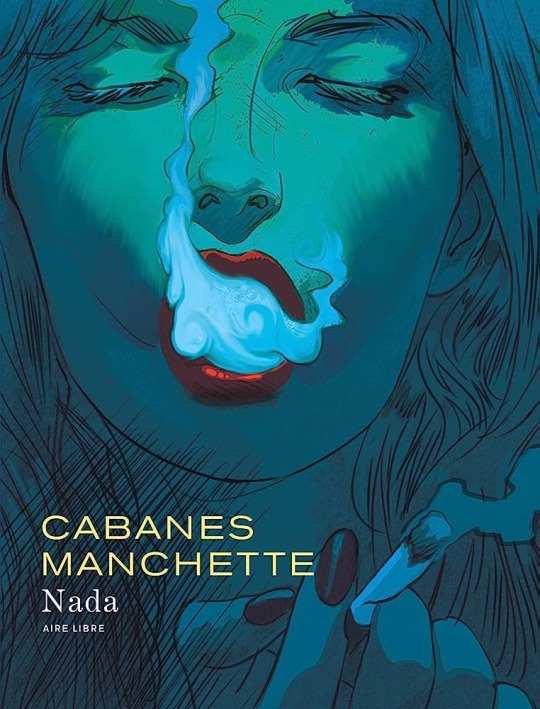
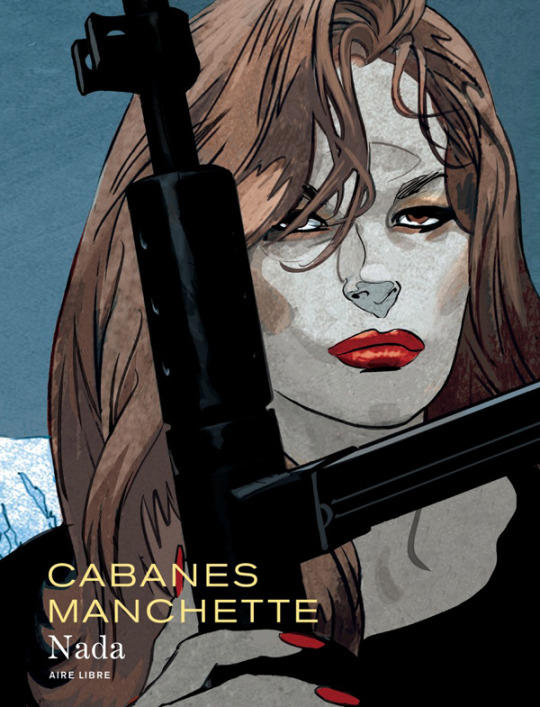
Nada, 2018, standard and limited editions. Adaptation of Jean-Patrick Manchette's 1972 novel by Max Cabanes (with Doug Headline, Manchette's son, as co-writer)
Third adaptation of Manchette by Cabanes.
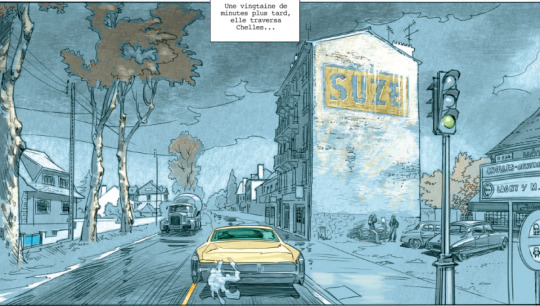
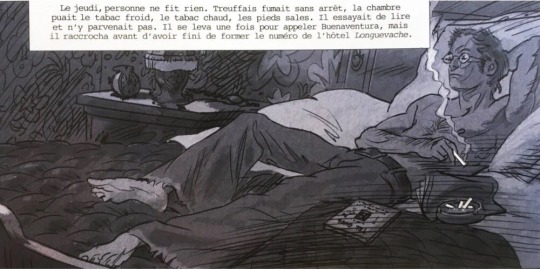
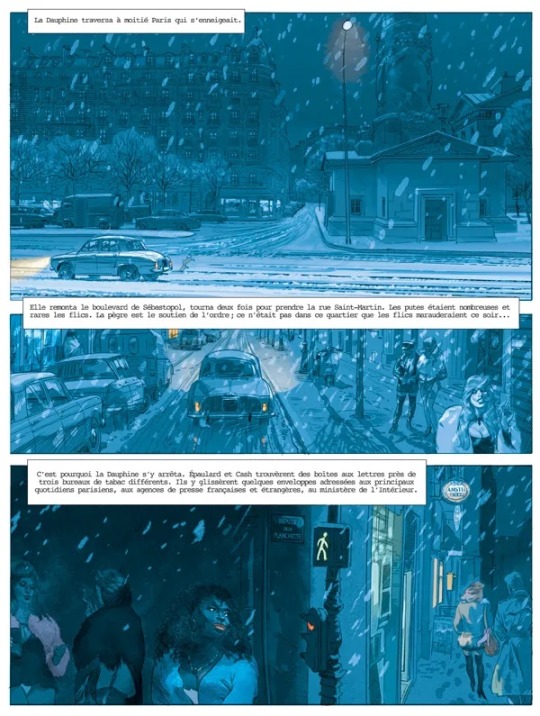
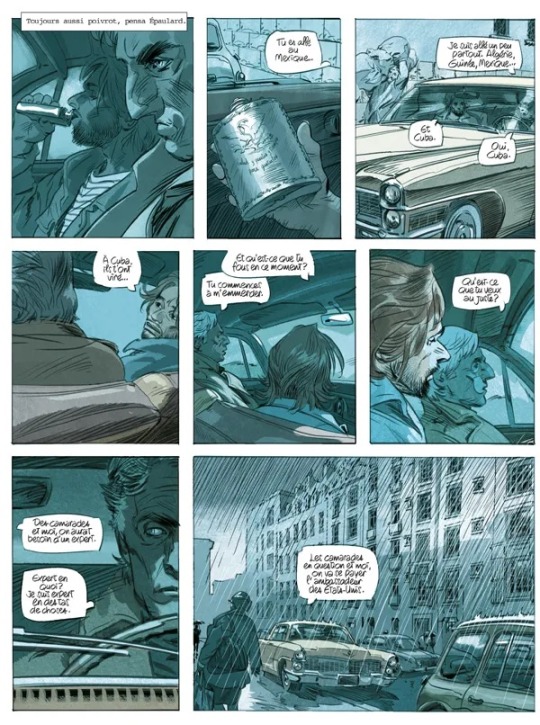
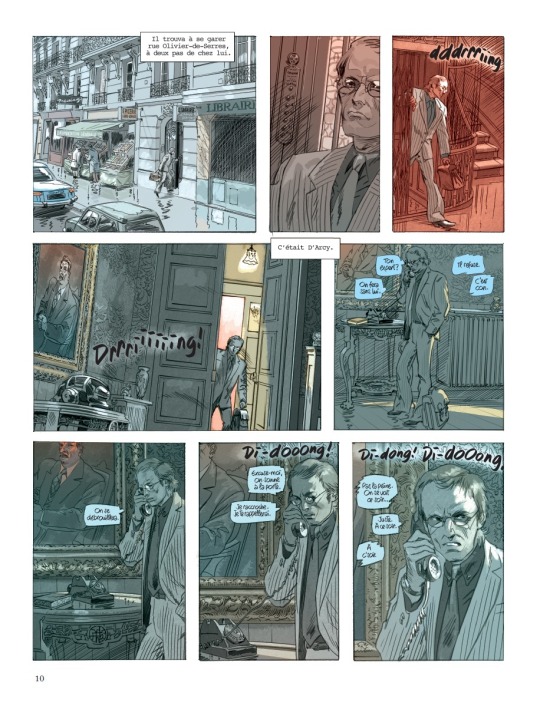
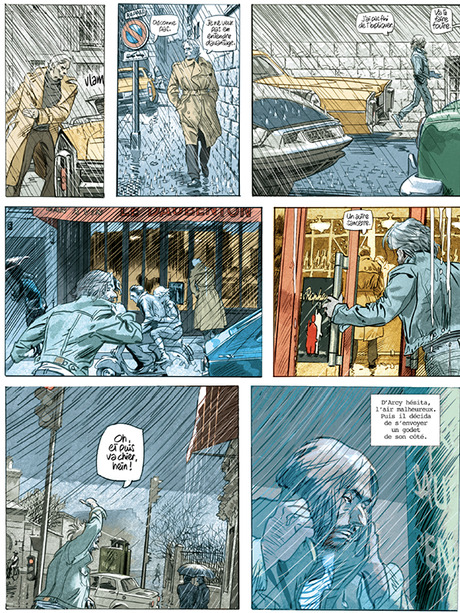

24 notes
·
View notes
Note
4 + 10 + 13 for the eoy book asks!
tttyyyyyy
Did you discover any new authors that you love this year?
shusaku endo for sure!! as i said the other day silence was my fav read of the year and i also really liked wonderful fool, still want to read the samurai and deep river. also to watch the silence movie lol. i also rlly vibed with ivory pearl by jean patrick manchette who i'd never heard of prior and i want to read more by him
What was your favorite new release of the year?
the fetishist by katherine min! slid in just above all fours which was the only other 2024 release i read and enjoyed lol
What were your least favorite books of the year?
knew i would get this question lol i think #1 was the lookback window by kyle hertz which i found basically unreadable. also weirdly meninist. (also i did realize that logging books makes me less willing to dnf once i'm like 50 pages in which is probably not great lmao) #2 acts of service which was like, god awful but i knew i would hate it going in so i can't be as mad about it. #3 confidence by rafael frumkin bad and stupid but i can't really remember anything about reading it so whatever. tied for #4 intermezzo and my education by susan choi which were both fine on a technical level but deeply perturbed and/or irritated me with their portrayals of sexuality and relationships in two very different ways. and honestly i could go on i hated so many books i read this year lol :(
5 notes
·
View notes
Text
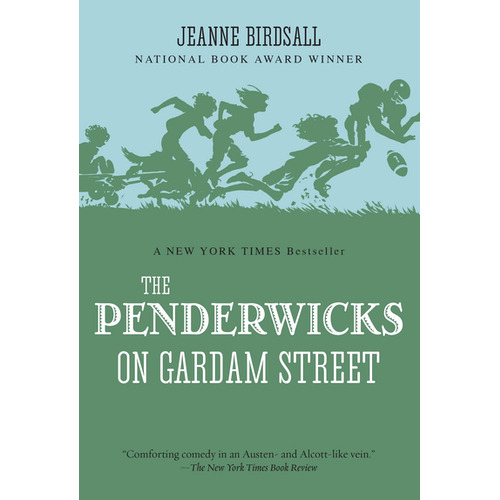
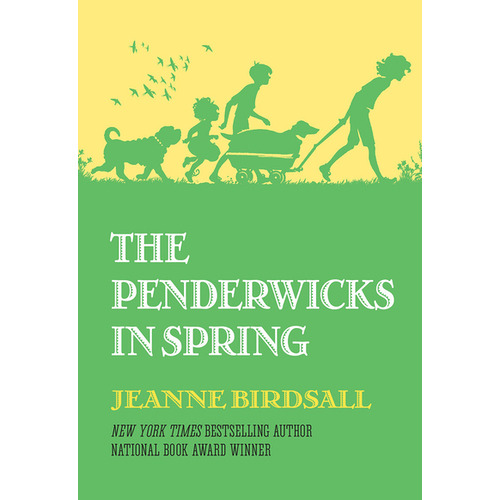
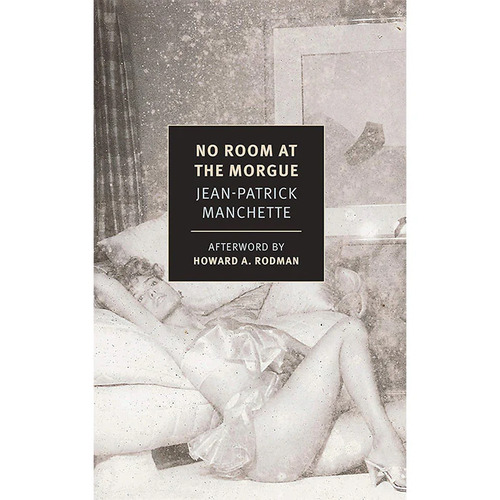
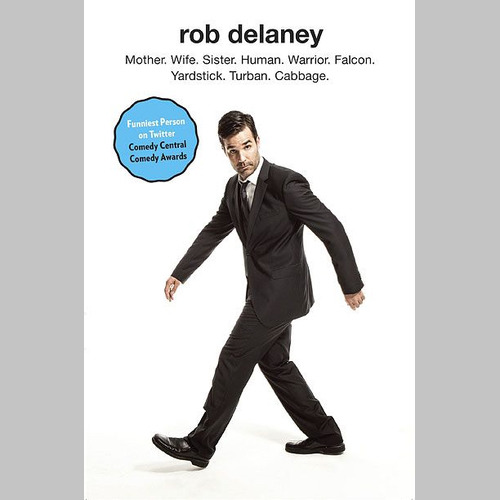
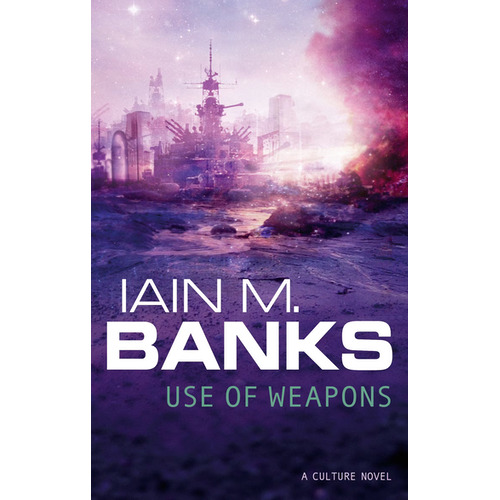
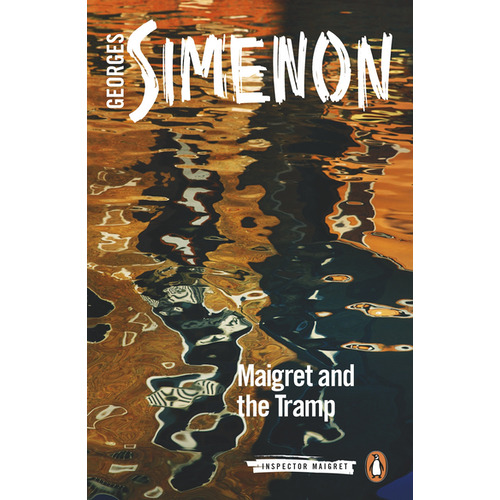
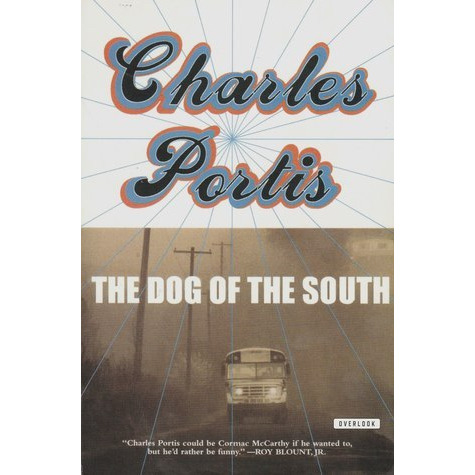
I took a long trip last fall to Singapore and Nepal. Here's some of what I read (and reread), plus a few fails, too.
The Penderwicks on Gardam Street (2nd in the series) and The Penderwicks in Spring (4th in the series) by Jeanne Birdsall.
This series has become a go-to comfort read. My daughter and I originally read this when they were a kid, and I had to dive back into it when I was missing them and my wife. I forgot how brutal The Penderwicks in Spring is, with Batty (the youngest Penderwick sister) overhearing one of her older siblings say something terrible (it involves their mother, who died just after Batty was born) and then failing to communicate with anyone about it for a while. (I reread the third book in the series earlier this year, which is why I skipped it during my trip.)
No Room at the Morgue by Jean-Patrick Manchette
Most of Machette's short crime novels (translated from French) are excellent, and there are a few graphic novel adaptations by cartoonist Jacques Tardi available in English, too. This isn't my favorite of Manchette's novels, but I enjoyed it quite a bit; it involves a down-on-his-luck detective (he's a former policeman) and a beautiful woman. It felt much more like a classic Raymond Chandler story than Manchette's other books.
Mother. Wife. Sister. Human. Warrior. Falcon. Yardstick. Turban. Cabbage. by Rob Delaney
The darkest parts of Delaney's autobiographical essays deal with his alcoholism and its consequences, but they still make me laugh out loud. I think I've read this book three or four times now. (This means I'm soon going to have to rewatch his TV series Catastrophe again in its entirety.)
Use of Weapons by Iain M. Banks.
After discovering Banks's Culture series in Kathmandu in 1999 -- it's my favorite science fiction series -- I was nostalgic for it during my recent trip to Nepal. I picked up a dusty copy in a used bookstore there, a throwback to the good old days when I had to dig though piles of paperbacks I had never heard of to find something interesting. (Now most books in the stores there are new, in plastic bags, well-organized, and almost as expensive as they'd be here.)
This book (the third in the series) is as good as I remember. It's concerned with war and soldiering and those with a natural talent for both. Rereading it I started to have the sense that I'd hated the ending when I first read it. And I was right, those last few pages suck, but I loved it right up until then. I tell you this only so you can stop reading it if you have that feeling, too.
Fails:
Maigret and the Tramp by Georges Simenon.
I've tried to read several Maigret books, but despite my love for short mysteries I haven't really enjoyed any of them. I forced myself to finish this one. I'm still not sure why they're so popular. (If you know which one of these I should start with, please tell me which that is. I have one more on my shelf, but I'll probably give it away.)
The Dog of the South by Charles Portis.
True Grit is such a great book I thought I'd read Portis's other four novels on my trip. I brought along the Library of America collection that contains them all. But reading this was like reading a well-composed joke that didn't make me laugh; I could see why it would be funny to someone, but I didn't care. I set the book aside for later.
4 notes
·
View notes
Text
2 notes
·
View notes
Text
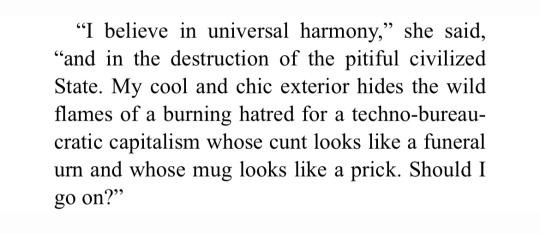
nada by jean-patrick manchette
4 notes
·
View notes
Text
BOOKS
The last 10 books I’ve read: 1. A Heart That Works - Rob Delaney This is, by far the most heartbreaking book I’ve ever read. Rob Delaney is a comedian and a writer and he wrote this book after his three year old son died of a rare brain tumor. It’s incredibly sad but also tender and there’s even funny moments. It’s one of the most eloquent and graceful books I’ve ever read. I highly recommend buying a Costco sized box of Kleenex and giving this a read. It’s very powerful.
2. The Mad and the Bad - Jean-Patrick Manchette This was a pretty fun read. It’s kind of random and unexpected. I don’t want to give too much away but it’s about a hitman with some gastro-intestinal maladies who’s hired for a kill and then all the twists and turns that unfold. Fun, quick read but not a book I’d seek out.
3. Altamont: The Rolling Stones, The Hells Angels, and the Inside Story of Rock’s Darkest Day - Joel Selvin I really enjoyed this book. A lot of people my age, too young to have attended Woodstock, have nevertheless heard a lot about it. Whether or not it’s an accurate representation is another issue, but not a lot of us know about Altamont - kind of the opposite of Woodstock, or how it happened or why it happened. If you’ve seen the documentary Gimme Shelter then you probably already know a lot of this, but as someone who is a huge fan of this era of music I found this book riveting.
4. Burning in Water Drowning in Flame - Charles Bukowski I happened to be back in Vancouver over the weekend and so I stopped by one of my favourite bookstores in search of more old books of Bukowski’s poetry and I found not one, but TWO! I bought them both and finished the first one the day after I got home. More classic dark, gritty, ugly, Bukowski.
5. The People Look Like Flowers At Last - Charles Bukowski Well, immediately after finishing the last book I picked up the other one and read it in a day. This was published posthumously and it has a lot of honesty about death in it that isn’t always there in a lot of his other stuff. It was refreshing but still, it has that classic Bukowski feel. I don’t know what I’ll do when I’ve read all his stuff. Read it again, I guess.
6. Play the Piano Drunk Like a Percussion Instrument Until the Fingers Begin to Bleed a Bit - Charles Bukowski In between e-mailing and waiting for responses I picked this one up and re-read it pretty quickly. It’s one of his shortest books of poetry and it’s easy to read. Plus, it has one of my favourite poems of his. A short seven letter poem named Art.
7. The Last Night of the Earth Poems - Charles Bukowski I decided to start re-reading some of Bukowski’s stuff. Maybe this is a phase? I don’t really know. But, reading is meant to be both educational and entertaining. Right now, I’m just really enjoying Bukowski so, I’ll keep on leaning into it for as long as it lasts. I think this is my favourite collection of his poetry. A lot of people say that Love is a Dog From Hell is his best, but I don’t agree. It’s by far the most sexual of his works, as in, a lot of his poems are about sex or sexuality, but I don’t think it’s his best work. To each their own.
8. Charles Bukowski On Writing - Charles Bukowski You know when you can’t stop listening to a certain artist for a while but then it goes away and you don’t really want to listen to them anymore? Then, after a while, you forget about them until you come across them again somehow. And, if the mood is right, you get hooked again and they’re all you’re going to listen to for a while. I think that’s what’s going on for me with Bukowski right now. The stack of other “books to read” is growing by the day, but I just keep going back to his stuff.
9. Trainspotting - Irvine Welsh Finally, a break from Bukowski. I’m sure you’re all thrilled. I went over to a friends house the other day and was admiring his books and he insisted on lending me something I’d never read before. I’ve never read anything by Irvine Welsh, and I haven’t seen the movie Trainspotting, so he eagerly lent me both Trainspotting and its sequel. Having been to Scotland several times and having lived there for a year in my teens, this book felt oddly nostalgic. Granted, I wasn’t running in these same circles, but the language really rang true. It’s largely written almost phonetically in a Scottish accent. If you’re not familiar with the slang or the flow of their speech, I imagine it would be a tough book to read. There is a short glossary at the back, but it’s pretty limited. I really enjoyed this book. It’s well written and it’s pretty dark. But there’s humour there too, and like I said, for me, nostalgia. I’m looking forward to reading the sequel.
10. Storm for the Living and the Dead - Charles Bukowski I finished reading Trainspotting and picked this back up. I was about 3/4′s of the way through when I put it down to switch books. This is a collection of poems that were unpublished before Bukowski died. It’s interesting to have read “On Writing” and to know how Bukowski felt towards his publisher, “holding poems back” from being published. And now, after his death, there continues to be book after book of posthumous publications. I’m sure he would’ve been pissed. But, when wasn’t he?
more soon, -joshua
2 notes
·
View notes
Text
A year in Books 2024
January 1st last year I was on train from Sydney to Melbourne in a small three-person first class compartment – at $100 for seniors it was a lot less than an air ticket and far more comfortable. I was reading Merlin Sheldrake’s Entangled Life while being rocked by the tracks or watching the world go by. H and I were accompanied by a Burmese monk who hardly said a word. It was an eventful journey. Electrical storms knocked out the signal system for a while and later on we were delayed by tree branches that had fallen across the tracks. Slow travel. Very restful. With good food from the train’s galley. The New South Wales crew very efficient and business-like, while the new crew when we crossed into Victoria were flamboyant and wildly entertaining during the various delays.
Back home, I read Alice Munro’s The Runaway. She’s an extraordinarily fine writer. I can’t remember the exact order of the books that followed but here’s an attempt. The Annual Banquet of the Gravediggers Guild by Matthias Énard, I found a bit perplexing in some ways. Not as strong for me as his earlier books but clearly a great job of translation by Frank Wynne. Early in the year, I read Kokoro by Natsume Sōseki, translated by Meredith McKinney, an intense story of a student and his mentor and bound up in family intrigues. That’s suitably giving nothing away.
I was delighted to get Unwords by Andrew Gallix, and it has stayed on the bedside table to dip into regularly for each short gem of literary/social criticism. Nicholas Rombes The Rachel Condition arrived from the United States, a book I’d been looking forward to for a long time to immerse myself in the parallel universe of an apocalyptic Detroit. It’s a punk noir novel of surveillance and shifting identities handled masterfully. A great book,
Now in no particular order: The Man from London by Georges Simenon (trans. Howard Curtis) led me to rewatch the Béla Tarr movie adaptation. That prompted me to read The Children of Men by P.D. James after rewatching the film by Alfonso Cuaron. The James novel didn’t give me the same visceral reaction that I had from the film. Skeletons in the Closet by Jean-Patrick Manchette (trans. Alyson Waters) arrived from the US. What a great addition to the translations of Manchette’s work. One of the best of his books that I’ve read. In April, I reread DeLillo’s Zero K. I enjoyed it more this time around when I was reading without any expectations or preconceptions. I’m a great admirer of Pascal Qignard but I didn’t find The Unsaddled (trans. John Taylor) kept me as strongly engaged as others in his Last Kingdom series. I found Ten Italian Folktales by Italo Calvino on the street, which was fun to read. I had a John Le Carré mini-jag with Call for the Dead, his first Smiley novel, and Tinker, Taylor, Soldier, Spy which is masterful; and led me into a comparison of the film and TV adaptations. The film with Gary Oldman and Colin Firth stands up better for me. After the Le Carré jag, I searched out a biography of Kim Philby called A Spy Among Friends by Ben Macintyre that points out the Monty-Pythonesque idiocy and blindness of the English ‘upper classes.’
Of other nonfiction: Werner Herzog: A guide for the perplexed. Conversations with Paul Cronin is another book I’ve been dipping into from time to time to enjoy a taste of Herzog’s craziness. Speaking of craziness, I picked up The Diary of Vaslav Nijinsky (ed. Joan Acocella, trans. Kyril Fitzlyon). I reread Songs They Never Play on the Radio by James Young after listening to a Backlisted Podcast on the book. I found it a pretty nasty take on Nico that maybe redeems itself in the final pages. That led on to my reading You Are Beautiful and You Are Alone: The Biography of Nico by Jennifer Otter Bickerdike, which is more respectful of such a major 20th century artist. After seeing the composite Eno movie in three of its iterations I picked up his published diary, A Year with Swollen Appendices, for a fascinating look at his creative process. I began reading The Waste Land – biography of a poem by Matthew Hollis. The history of Eliot and Pound and their struggle with creation and publication is interesting. I did find accounts of the gossip and cattiness around the Bloomsbury set particularly irritating. Maybe some people wouldn’t.
Ai Weiwei’s graphic novel Zodiac is a nonlinear memoir of growing up in China and continuing to work there and in the West. I reread Logicomix by Apostolos Doxiadis and Christos Papadimitriou in preparation for reading Wittgenstein’s Tractatus Logico Philosophicus translated by Alexander Booth. Reading the graphic novel as preparation fro Wittgenstein is not as crazy as it sounds. Logicomix gives an outline of the development of Logical Postitivism in the early 20th century and a historical context for Wittgenstein’s masterwork. Jan Zwicky’s Introduction to Alex’s translation is a sharp focus on how to read it.
In the middle of the year, The Powers of Horror by Julia Kristeva (trans. Leon S. Rudiez) seemed to jump off the shelf at me for some reason and led to me comparing the translations of Céline’s Journey to the End of the Night, one by Ralph Mannheim and the other by John H.P. Marks. Both of them had their merits. So more Céline. I enjoyed the crazy carnivalesque of Guignol’s Band (trans. Bernard Frechtman and Jack Nile). War – translated by Charlotte Mandel – is such a powerful evocation of war on the front lines, and more particularly behind the lines in a military hospital. It’s one of the best books I’ve read this year.
Books I’ve dipped into which I’ll continue with are Milton’s Paradise Lost; and Miss MacIntosh, My Darling by Marguerite Young. I picked out a number of stories in An Anthology of Chinese Literature from early times to the 14th Century by Cyril Birch
It’s been fascinating to read these particular books of poetry:
19 Ways of Looking at Wang Wei by Eliot Weinberger (various translators)
After Nature by W.G. Sebald.
Kantor by Alexander Booth (that also has selections of his visual art.)
Songs for Relinquishing the Earth by Jan Zwicky – a reread
Japanese Death Poems compiled by Yoel Hoffman
The Ink Dark Moon by Ono No Komachi and Shikibu Izumi (trans. Jane Hirshfield with Mariko Aritani). This book made a huge impression on me.
Perhaps the book that made the biggest impression on me this year was The Last Samurai by Helen De Witt.
#books#literature#novels#reading#poetry#japanese poetry#chinese poetry#graphic novels#lit crit#nonfiction#fiction
1 note
·
View note
Note
Book asks! 1, 3, 12
How many books did you read this year?
132. (And that's what's happens when you have multi day holidays without electricity!)
3. What were your top five books of the year?
Cruel. Cruel, cruel. But, if I had to pick:
Nada, by Jean-Patrick Manchette
Miss Muriel and Other Stories, by Ann Petry
They Came for the Schools, by Mike Hixenbaugh
The Slynx, by Tatyana Tolstaya
The Best of Everything, by Rona Jaffe
12. Any books that disappointed you?
I really wanted Tom Lin's The Thousand Crimes of Ming Tsu to be the awesome revisionist revenge Western it promised, but why did we spend so. much. time. with the circus performers?
(But truly I saved myself so much disappointment by making a pact not to read Ava Reid books again, especially not the latest Macbeth 'reinterpretation', not even out of morbid curiosity.)
1 note
·
View note
Text
Poem at 65 // Stuart Ross
It is just after midnight.
I close my book
(Skeletons in the Closet,
Jean-Patrick Manchette,
p. 64) and put it on my
night table. In the washroom,
I spit in the sink,
then blast the cold water,
send the remnants of 64
down the drain. I have
never mentioned spit
in a poem before. So
this is it. This is
what 65 is all about.
A silverfish swims by
on the floor, grazes
my toe. It is neither
silver, nor a fish.
18 July 2024
0 notes
Text
0 notes
Text
0 notes
Text

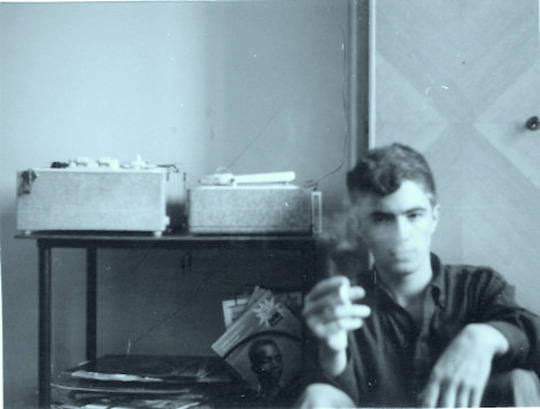
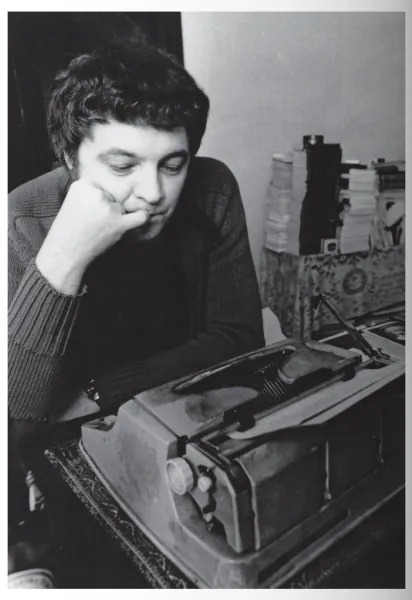
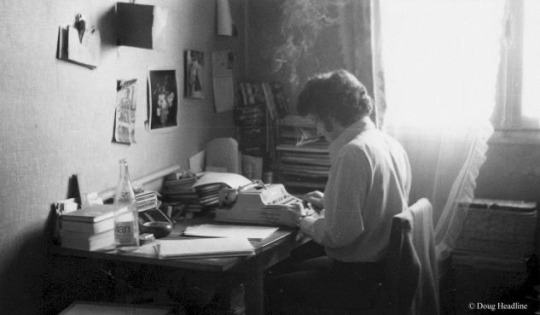
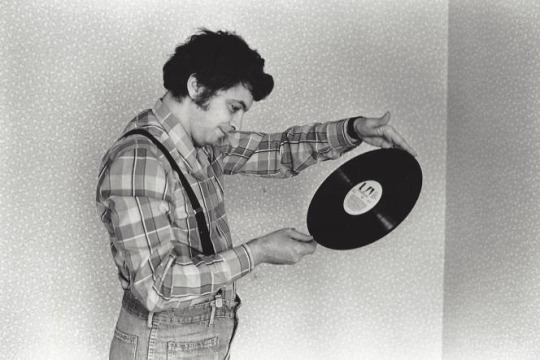
Remembering Jean-Patrick Manchette (19 December 1942 – 3 June 1995)
3 notes
·
View notes
